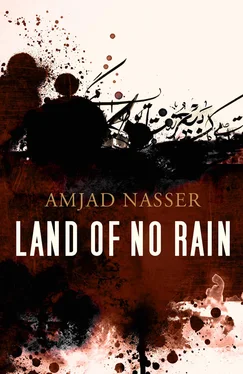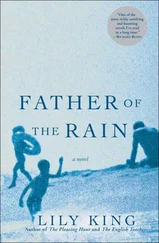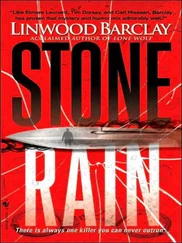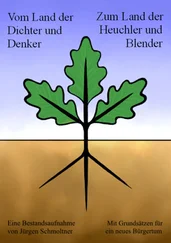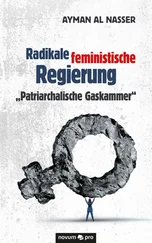I don’t know why one distant memory came back to him, of when he met Hala. He didn’t need to tell me about that particular memory. It happened when he was me. It was more about me than about him. I immediately recalled that afternoon under the vine trellis. The interminable heat. The big shade. Awaiting the arrival of the woman who wanted to join the Organisation. The smell of mint that blew in from I don’t know where, because at comrade Hanan’s bungalow, in front of which we were sitting on plastic chairs, there was nothing but a vine trellis that cast some welcome shade, and some patchy grass growing on wasteland thanks to a leaky water pipe that had never been fixed. Two of the five or six people present — comrade Hanan and me — knew Hala from before. She lived in a house near comrade Hanan’s house and Hanan didn’t introduce her to us until she was sure she was eligible to join the Organisation. The meeting was social and informal. That’s how it should seem to Hala and to the guards that were posted everywhere. Hala arrived carrying a cake. Beads of sweat were forming on her brow and the tip of her nose, which made her look more attractive. Maybe she was flustered because she didn’t know most of those present. I had met Hala casually a few times with comrade Hanan and, because of her easy-going nature, our relationship had become uninhibited, with none of the awkwardness or complexes that usually constrain relationships between young men and women in our country. I noticed that she showed an interest in Mahmoud, but he was so malicious that he ignored her interest. In fact he ignored her completely. I knew this characteristic of his. The way that, by ignoring someone, he makes the person he ignores inquisitive about him. But Hala wasn’t the type to be ignored. Her femininity, her cheerfulness, her distinctive Anatolian features, her statuesque figure. It was hard for a young man to see her and not turn his head. But these qualities did not turn Mahmoud’s head. That’s what he wanted to convey to her, in his devious way. And he succeeded. It was a casual meeting. Various subjects were discussed. But not politics directly, just peripherally: the poverty in the slums and remote towns, women’s liberation, eradicating illiteracy, the gaps in the five-year plan and so on. Quick headlines and a cursory discussion. One subject led to another. That meeting, when Mahmoud spouted what sounded like schoolboy talk on almost every subject that came up, was the start of Hala’s infatuation with my friend. The rest is details. Such as the fact that shortly afterwards Hala and Mahmoud announced their engagement, which never came to marriage for some reason he would never disclose to us. I noticed that after the engagement Hala kept her distance and was reserved. She no longer slapped her hand on my shoulder when she laughed at something I had said or kissed me on the cheek when we met. I didn’t understand. I asked her if something about me had upset her and she denied it. She said it was maybe because she was tired from work. After graduating from the National Education Institute, the Hamiya personnel department had given her a job as a teacher in a girls’ school in a remote town. Her excuse was not convincing. Her attitude upset me but I didn’t dwell on it. At the time I was deeply in love with Roula. Her father had been killed and we got engaged after a passionate love affair. Hala’s eyes, by clouding over when we met, were telling me why she was keeping her distance, but I ignored them. I found out from comrade Hanan, who told me in disbelief that the reason for Hala’s changed behaviour towards me was Mahmoud’s jealousy and his suspicion that she was fond of me, or perhaps his suspicion that we had once had a relationship. The mere fact that I had known her before him apparently upset him.
Unfortunately for him, it was only through me that Mahmoud experienced some of the landmark events in his life and developed interests that preoccupied him for so long. This was a pattern that Mahmoud openly fought against. He tried to bury his anger about it deep inside himself, but from time to time it would float to the surface and I could sense the unpleasant taste of it in my stomach. It was apparently too much for him that I had known the woman he was about to marry, even if our acquaintance had gone no further than innocent friendship or affection of the kind that brothers and sisters might have. I must admit he would sometimes startle me with remarks that might not have been original but sounded as if they were. I’ll never forget one striking turn of phrase of his, when I told him that he borrowed other people’s remarks and brazenly passed them off as his own. ‘You shouldn’t borrow what you want. You should steal it,’ he said.
I didn’t bring up the subject of Hala with Mahmoud. Because events gathered pace. How could I have known we were heading towards an event that would drive us apart, that the last memories still resonating in my head would be of this circle of young people full of hope, the leisurely sessions under the vine trellis, and the short man sitting with us who we thought was a senior member of the Organisation while he was in fact the local leader who would later be executed and buried in an unmarked grave? Because what happened happened, and I am no longer me.
* * *
He had to make this visit.
It wasn’t tradition that made him do it, but something else.
I saw him hurriedly putting on a pair of trousers he took from his wardrobe, then a T-shirt he found on the edge of the bed. He put the hunting hat with the wide brim on his head, the same one he was wearing in the photograph with Khalaf and Salem, after finding it at the top of the wardrobe. He knew the sun would be fierce after a while. He had decided to go and visit them. But his mother and his father were buried in different cemeteries. With the increasing population and the prevalence of death the old cemetery, with its earth graves close to the surface, was crammed full, so a second cemetery and then a third had sprung up. He didn’t think about which grave he would visit first but just set off, walking with a slouch. His grey hair flashed like a mirror under the sun of a yawning mid-morning. By his side walked young Younis, sometimes holding his hand, sometimes letting it go, as though uncomfortable with the idea of being connected to someone or something.
Many years ago, when he was the same age and height as the boy who was sometimes holding his hand, sometimes letting it go, he used to walk along these streets, jumping from wall to wall with a stick in his hand. He used to read books about chivalry and the agonies of love under lamp-posts, and comb his hair with a quiff. There were fewer streets then than there are now, but they were tidier. As was apparent from his uncertain gait, he didn’t know which street to take after the big junction that divided our district into four equal sections, the junction for which the house that people called Nakuja Abad, after the two words inscribed on the arch outside, was a major landmark. He was looking at the child, and the child realised he was confused. The child pointed towards the west. They crossed the last street he knew and then he left young Younis in charge. He was silent, and so was the boy. From one street to the next, young Younis said, ‘This way, Uncle.’ Then he would fall silent again. He followed in the footsteps of the boy, who led him by the shortest route, like the word sakiina in the maze of his father’s Kufic design. I’m sure he gave up trying to recognise the small streets, because the goods in the shops along the way had mostly changed. The new goods met needs that were unknown in the past. Perhaps he noticed that these same goods, with the same names, in the same packets or tins of the same colour, were now available everywhere: an alternative form of internationalism that splashed its brands across towns and villages, across oceans and continents, transcending languages and local distinctions, an internationalism of magic merchandise that floats across the face of the earth.
Читать дальше
